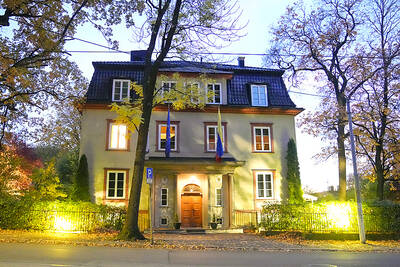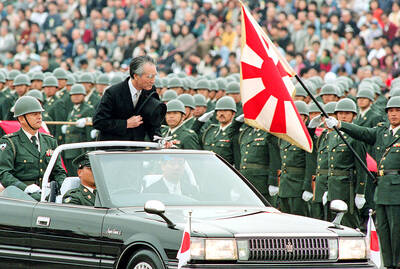Vietnam acknowledged some human rights “wrongdoings” in its appearance before a UN watchdog on Friday, but rejected exiles’ allegations about the mistreatment of dissidents and minorities.
The exiles, backed by a major international human rights group, submitted a report to the UN Human Rights Council accusing the Southeast Asian country of quashing press freedom and Internet access to try to silence critics.
Their report demanded the release of political prisoners held under “vague national security provisions” of Vietnam’s law — a call echoed by the US delegation in its speech on Friday.
The report also raised concerns about religious repression, widespread use of the death penalty and coercive birth control.
Vietnam defended its record at the 47-member forum in Geneva, which is assessing the Vietnamese human rights record under a mechanism that will scrutinize all UN members.
Pham Binh Minh, Vietnam’s first vice minister of foreign affairs, said Hanoi had made achievements. Religious activities had increased and ethnic minorities are “participating in an increasingly equal manner in social and political life.”
He acknowledged shortcomings, including “wrongdoings” by some civil servants with a limited understanding of human rights, saying his government is aware that challenges remain.
“We find it unfortunate that there have been unfounded reports and reject allegations of ill will about democracy and human rights in Vietnam,” Minh said. “Vietnam is still victim of hostile activities like terrorism, sabotage, acts to destabilize the country and infringe upon national security and territorial integrity.”
In his remarks to the UN forum, British ambassador Peter Gooderham said there had been improvement in some areas of civil and political rights, such as religious freedom.
“However, areas of concern remain, most notably freedom of expression, media freedoms and the death penalty,” he said.
The activists’ report says Vietnam’s ruling Communist authorities routinely use charges of espionage to detain “cyber-dissidents” for posting their views on the Internet.
“These crimes, which make no distinction between violent acts such as terrorism and the peaceful exercise of freedom of expression, are punishable by harsh prison terms including life imprisonment,” it said.
Seven crimes carry the death penalty.
Penelope Faulkner, executive secretary of the Vietnam Committee on Human Rights, said: “There are several thousand political prisoners all over the country. They are detained in all sorts of ways including house arrest.”
Vietnamese exiles including Buddhist monks demonstrated outside the UN offices in Geneva to draw attention to the rare international scrutiny of their homeland.
Repression on religious grounds was also described in the group’s report as widespread, despite freedom of religion being guaranteed in the Constitution.

The Venezuelan government on Monday said that it would close its embassies in Norway and Australia, and open new ones in Burkina Faso and Zimbabwe in a restructuring of its foreign service, after weeks of growing tensions with the US. The closures are part of the “strategic reassignation of resources,” Venezueland President Nicolas Maduro’s government said in a statement, adding that consular services to Venezuelans in Norway and Australia would be provided by diplomatic missions, with details to be shared in the coming days. The Norwegian Ministry of Foreign Affairs said that it had received notice of the embassy closure, but no

A missing fingertip offers a clue to Mako Nishimura’s criminal past as one of Japan’s few female yakuza, but after clawing her way out of the underworld, she now spends her days helping other retired gangsters reintegrate into society. The multibillion-dollar yakuza organized crime network has long ruled over Japan’s drug rings, illicit gambling dens and sex trade. In the past few years, the empire has started to crumble as members have dwindled and laws targeting mafia are tightened. An intensifying police crackdown has shrunk yakuza forces nationwide, with their numbers dipping below 20,000 last year for the first time since records

EXTRADITION FEARS: The legislative changes come five years after a treaty was suspended in response to the territory’s crackdown on democracy advocates Exiled Hong Kong dissidents said they fear UK government plans to restart some extraditions with the territory could put them in greater danger, adding that Hong Kong authorities would use any pretext to pursue them. An amendment to UK extradition laws was passed on Tuesday. It came more than five years after the UK and several other countries suspended extradition treaties with Hong Kong in response to a government crackdown on the democracy movement and its imposition of a National Security Law. The British Home Office said that the suspension of the treaty made all extraditions with Hong Kong impossible “even if

Former Japanese prime minister Tomiichi Murayama, best known for making a statement apologizing over World War II, died yesterday aged 101, officials said. Murayama in 1995 expressed “deep remorse” over the country’s atrocities in Asia. The statement became a benchmark for Tokyo’s subsequent apologies over World War II. “Tomiichi Murayama, the father of Japanese politics, passed away today at 11:28am at a hospital in Oita City at the age of 101,” Social Democratic Party Chairwoman Mizuho Fukushima said. Party Secretary-General Hiroyuki Takano said he had been informed that the former prime minister died of old age. In the landmark statement in August 1995, Murayama said